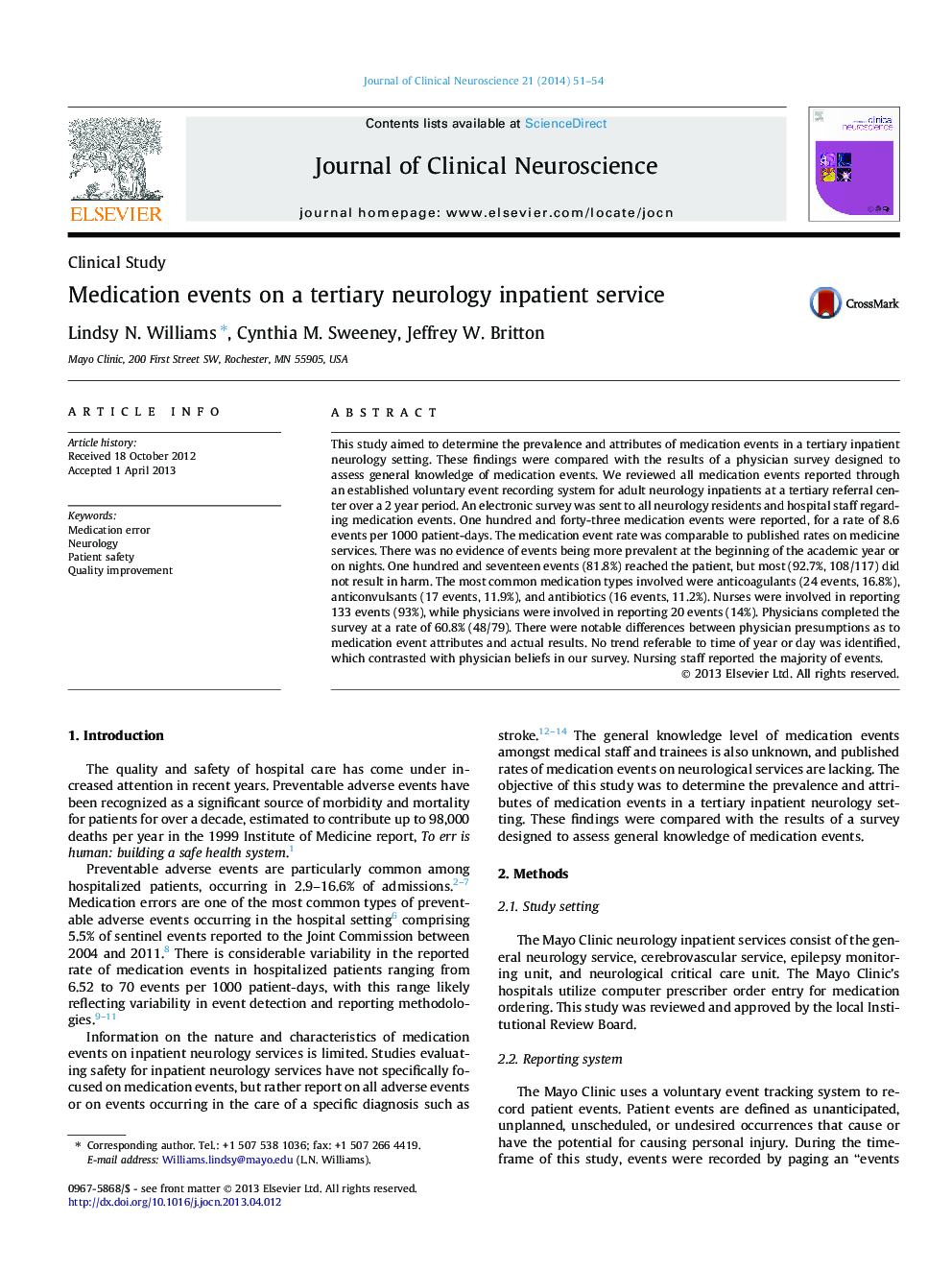| Article ID | Journal | Published Year | Pages | File Type |
|---|---|---|---|---|
| 3059812 | Journal of Clinical Neuroscience | 2014 | 4 Pages |
This study aimed to determine the prevalence and attributes of medication events in a tertiary inpatient neurology setting. These findings were compared with the results of a physician survey designed to assess general knowledge of medication events. We reviewed all medication events reported through an established voluntary event recording system for adult neurology inpatients at a tertiary referral center over a 2 year period. An electronic survey was sent to all neurology residents and hospital staff regarding medication events. One hundred and forty-three medication events were reported, for a rate of 8.6 events per 1000 patient-days. The medication event rate was comparable to published rates on medicine services. There was no evidence of events being more prevalent at the beginning of the academic year or on nights. One hundred and seventeen events (81.8%) reached the patient, but most (92.7%, 108/117) did not result in harm. The most common medication types involved were anticoagulants (24 events, 16.8%), anticonvulsants (17 events, 11.9%), and antibiotics (16 events, 11.2%). Nurses were involved in reporting 133 events (93%), while physicians were involved in reporting 20 events (14%). Physicians completed the survey at a rate of 60.8% (48/79). There were notable differences between physician presumptions as to medication event attributes and actual results. No trend referable to time of year or day was identified, which contrasted with physician beliefs in our survey. Nursing staff reported the majority of events.
